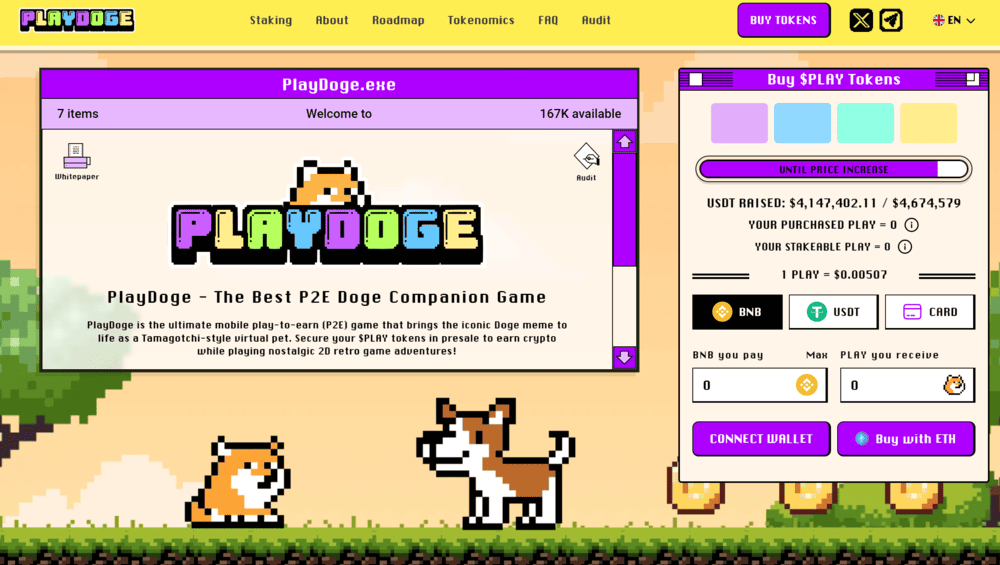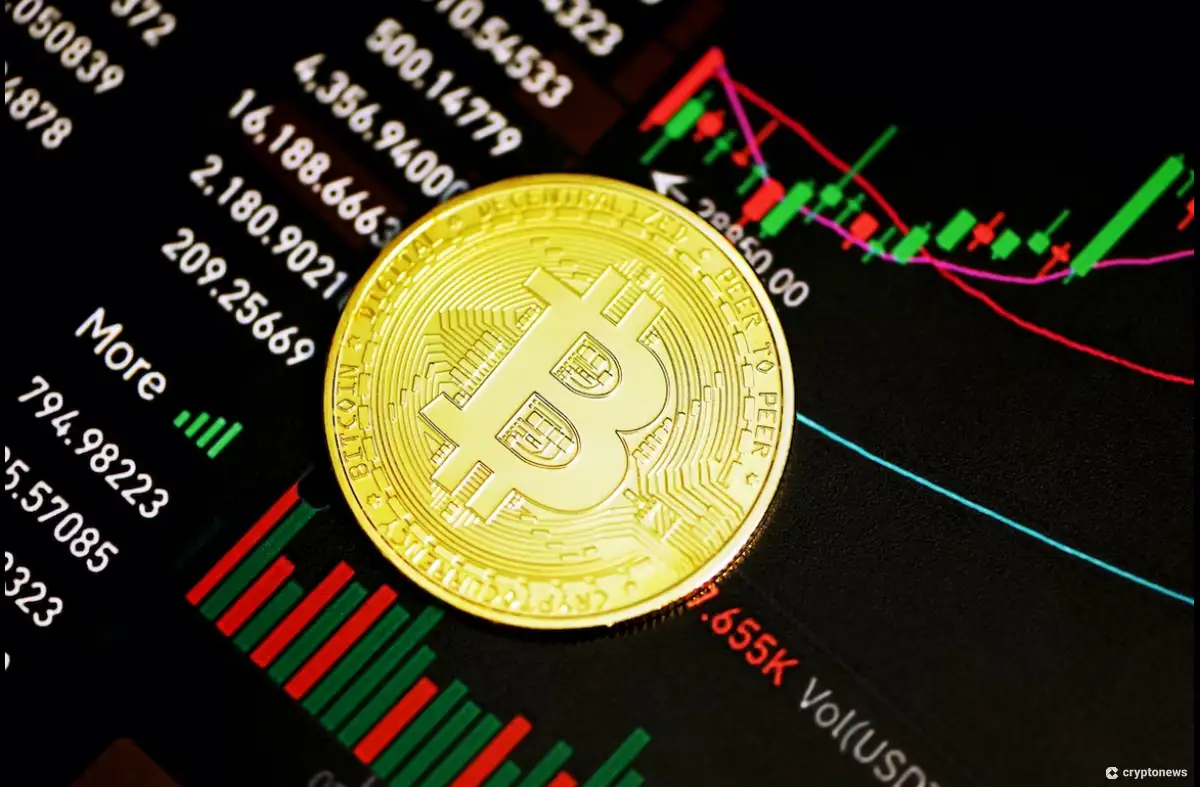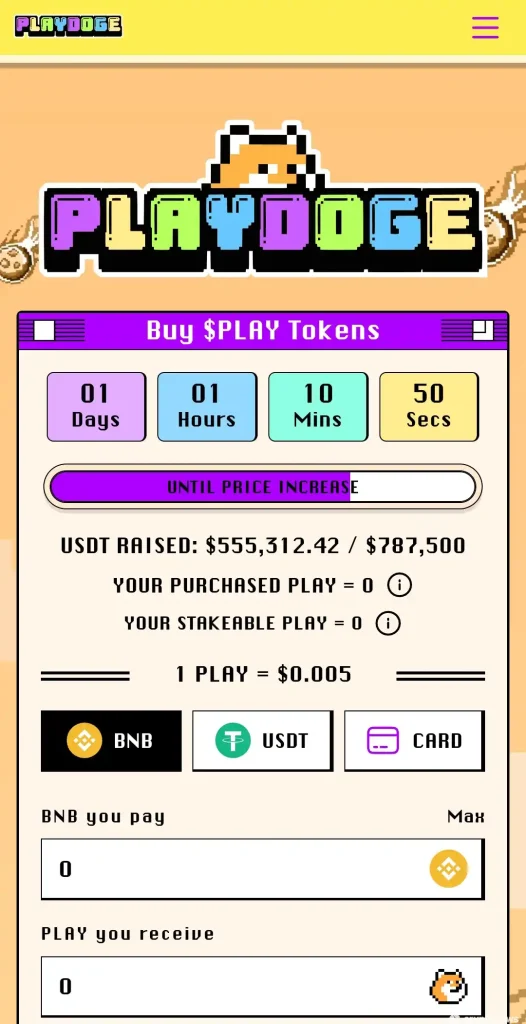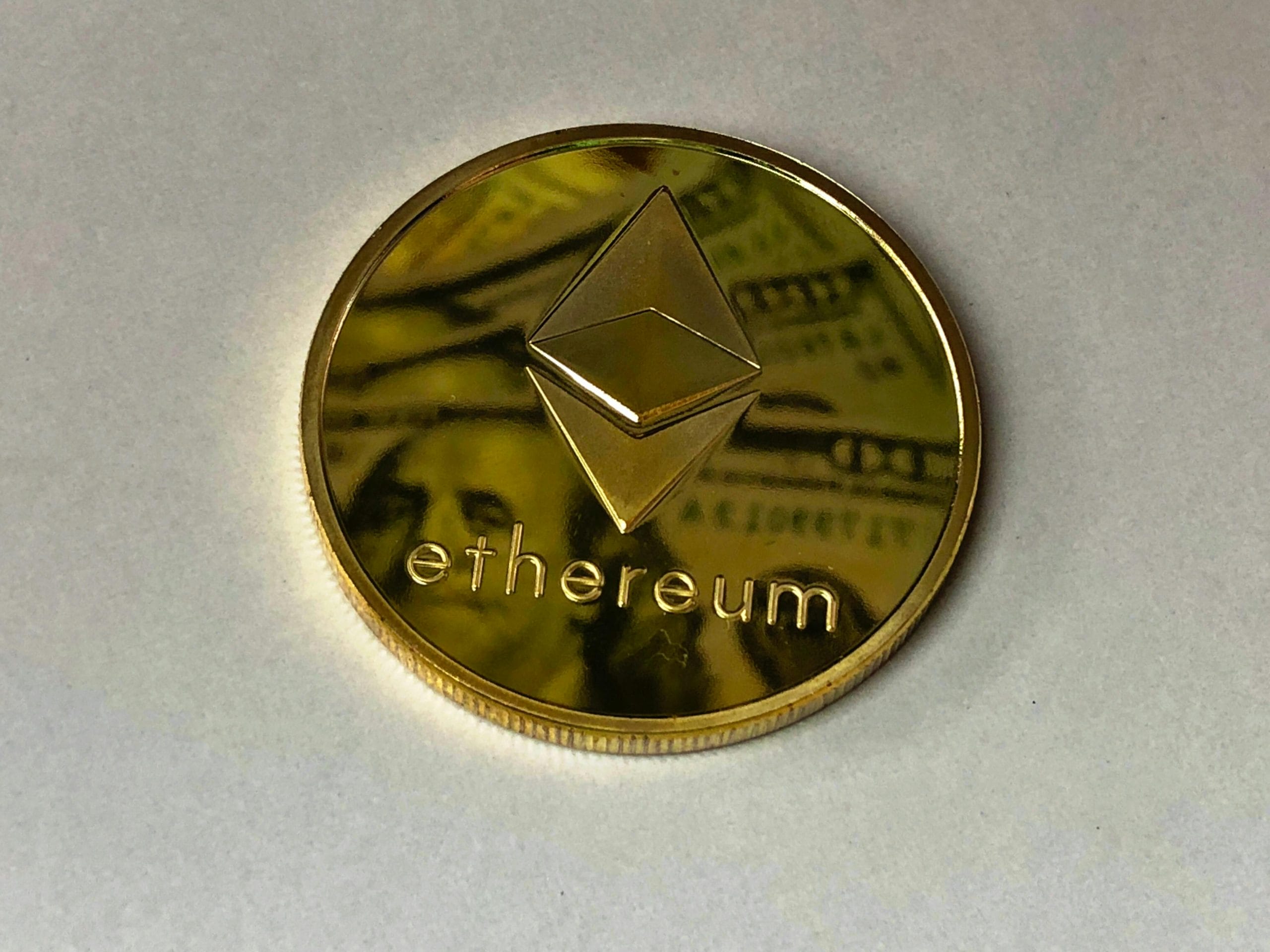10 Cryptos With The Lowest Transaction Fees in 2024
Cryptocurrency markets continue to evolve in mainstream society, with the growing cost of transactions a critical factor for participants. For those looking to minimize their expenses, finding the crypto with the lowest transaction fees is essential to improve the barriers to profitability.
Whether you’re transferring funds, making payments, or engaging in decentralized finance (DeFi) trading, finding the cheapest crypto to transfer can significantly reduce costs and improve efficiency. In this article, we will explore the top cryptocurrencies with the lowest transaction fees in [current year], providing a detailed overview of their features and benefits.
List of Coins with Lowest Fees
So, what crypto has the lowest fees? Many cryptocurrencies have competitive transaction fees; however, in this guide, we will look at the top 10. Let’s dig deeper into the list of the best crypto with the lowest fees.
| Crypto | Transaction Fee | Transaction Speed | Market Cap |
| Nano | $0 | Instant | $170M |
| IOTA | $0 | Instant | $744M |
| TRON | 1 free transaction per day | 3 seconds | $10.6B |
| Solana | $0.00025 | 2.5 seconds | $81B |
| Dogecoin | $0.04 | 1 minute | $24B |
| XRP | $0.0002 | 4 seconds | $30B |
| Litecoin | $0.0025 | 2.5 minutes | $6B |
| Monero | $ 0.0010 | 2 minutes | $2.5B |
| Bitcoin Cash | $0.01 | 10 minutes | $10B |
| PlayDoge | Low | Instant | $9.4B |
10 Cheapest Cryptos to Transfer – Lowest Gas Fees
From our research, these are the cheapest cryptos with the lowest transaction fees.
1. Nano – Cheapest Crypto to Transfer with $0 Fees
Nano stands out as one of the best options for those seeking cryptocurrencies with no transaction fees. With its unique architecture, Nano offers zero transaction fees, making it an attractive choice for micro-transactions and everyday use. Nano’s instant transaction speed further enhances its usability, allowing for real-time payments without any cost.
Nano’s zero-fee model is particularly beneficial for users who need to make frequent transfers or small payments, as it reduces the cost barrier. The network’s efficiency and low energy consumption also contribute to its appeal, positioning Nano as a sustainable and cost-effective cryptocurrency.
With a market cap of $170M, Nano remains a competitive player in the crypto space. Its commitment to providing fast, seamless transactions ensures its relevance in a market where transaction costs are a significant concern. Consider purchasing Nano on exchanges like Binance to take advantage of its cost-effective transactions.
| Transaction Fee | $0 |
| Transaction Speed | Instant |
| Market Cap | $170M |
2. IOTA – Internet of Things (IoT) Crypto with $0 Fees
Built specifically for the Internet of Things (IoT), IOTA has one of the lowest crypto transaction fees. Utilizing Tangle, which is a revolutionary distributed ledger technology, IOTA facilitates fee-less transactions and high scalability. This unique approach allows for secure and efficient machine-to-machine transactions, making it ideal for applications centered around IoT.
Its zero-fee structure makes it a cost-effective choice for various use cases, from everyday transactions to complex IoT operations. The Tangle’s scalability ensures that as the network grows, transaction speeds remain fast and efficient, enhancing its practical utility.
With a market cap of $$744M, IOTA continues to be a prominent player in the crypto industry. Its innovative technology and zero transaction fees make it a compelling option for those looking to minimize transaction costs. The token is available on major exchanges like Binance and MEXC, providing easy access for users who want to buy IOTA tokens.
| Transaction Fee | $0 |
| Transaction Speed | Instant |
| Market Cap | $744M |
3. TRON – Blockchain Platform offering 1 Free Transaction per Day
TRON offers a unique advantage with its one free transaction per day policy, making it a cost-effective option for users. Designed to decentralize the web, TRON enables fast and low-cost transactions, leveraging its high-throughput blockchain technology. TRON’s focus on content sharing and entertainment adds to its appeal, providing a versatile platform for various applications.
This free daily transaction feature allows users to engage with the TRON network without incurring costs, making it ideal for regular use. TRON’s fast transaction speed, typically around 3 seconds, ensures efficient and timely transfers, further enhancing its usability.
With a market cap of $10.6B, TRON is a major player in the crypto market. Its innovative approach and very low transaction fees make it a popular choice among users. TRON can be purchased on exchanges such as Binance, making it accessible for those seeking a cost-effective cryptocurrency.
| Transaction Fee | $0 |
| Transaction Speed | 3 seconds |
| Market Cap | $10.6B |
4. Solana – Top 10 Crypto with Fee of $0.00025 Per Transaction
Solana is known for being one of the lowest gas fees cryptos, costing close to $0.00025 per transaction. As a high-performance blockchain, Solana offers rapid transaction speeds, often completing transfers in approximately 2.5 seconds. Solana’s scalable architecture supports high throughput, making it suitable for decentralized applications (dApps) and large-scale blockchain projects.
The minimal transaction fees on Solana are a significant advantage, allowing users to perform numerous transactions without worrying about high costs. Solana’s efficient network design and quick transaction times make it a preferred choice for developers and users alike.
With a market cap of $81B, Solana is a leading cryptocurrency with a strong presence in the market. Its low fees and fast transaction speeds make it an attractive option for those looking to minimize costs. Solana is available on major exchanges such as Binance and Coinbase, providing easy access for users.
| Transaction Fee | $0.00025 |
| Transaction Speed | 2.5 seconds |
| Market Cap | $81B |
5. Dogecoin – World’s Largest Meme Coin with $0.04 Fee
Dogecoin, created as a joke in 2013 by software engineers Billy Markus and Jackson Palmer, has grown into one of the most popular cryptocurrencies in the market. Initially based on the popular “Doge” meme featuring a Shiba Inu dog, Dogecoin was intended to be a lighthearted and fun alternative to Bitcoin. However, its strong and enthusiastic community, coupled with high-profile endorsements from figures like Elon Musk, has propelled Dogecoin into the mainstream.
Despite its humorous origins, Dogecoin offers practical benefits for cryptocurrency users, particularly in terms of transaction costs. The average transaction fee for Dogecoin is approximately $0.04, making it an economical choice for small-scale and frequent transactions. Dogecoin’s relatively fast transaction speed, averaging around 1 minute, further enhances its usability for everyday activities such as tipping, donations, and microtransactions.
By adopting Dogecoin, users can benefit from a cryptocurrency that combines low fees, fast transaction times, and a strong, active community. While initially perceived as just a cheap crypto to buy and a meme, Dogecoin has proven its utility and staying power in the cryptocurrency market, demonstrating that it can be both fun and functional.
| Transaction Fee | $0.04 |
| Transaction Speed | 1 minute |
| Market Cap | $24B |
6. XRP – $30B Market Cap Crypto Charging $0.0002 Per Transaction
XRP is renowned for its low fees, averaging roughly $0.0002 per transaction. Developed by Ripple Labs, XRP aims to facilitate fast and affordable cross-border payments, leveraging its high-speed blockchain technology. XRP’s focus on financial institutions and remittances makes it a key player in the payment processing sector.
The low transaction fees of XRP are a major benefit, allowing users to transfer funds quickly and cheaply. XRP’s transaction speed, typically around 4 seconds, further enhances its efficiency, making it a preferred choice for financial transactions.
With a market cap of $30B, XRP is a leading cryptocurrency with widespread adoption. Its low fees and fast transaction times make it a popular choice among users and institutions. XRP is available on most major exchanges, including Binance and Coinbase, providing easy access for users.
| Transaction Fee | $0.0002 |
| Transaction Speed | 4 Seconds |
| Market Cap | $30B |
7. Litecoin – Low Cost Token with Fee of $0.0025
Litecoin offers low transaction fees and is one of the cheapest cryptos to transfer between exchanges, costing nearly $0.0025 per transaction. As one of the earliest cryptocurrencies, Litecoin was designed to provide fast and affordable payments, leveraging a simplified version of Bitcoin’s technology. Litecoin’s quick transaction times, typically around 2.5 minutes, make it a practical choice for everyday use.
The low transaction fees on Litecoin are a significant advantage, allowing users to perform transactions without incurring high costs. Litecoin’s efficiency and speed make it an attractive option for users seeking a cost-effective cryptocurrency.
With a market cap of $6B, Litecoin remains a major player in the crypto market. Its low fees and quick transaction times make it a popular choice among users as a cheap crypto to buy. Litecoin is available on most major exchanges, including Binance and Coinbase.
| Transaction Fee | $0.0025 |
| Transaction Speed | 2.5 minutes |
| Market Cap | $6B |
8. Monero – Privacy-Focused Crypto with a Low Fee of $0.0010
Monero is known for its focus on privacy and low fees, with an average transaction fee starting from $0.0010. Designed to provide secure and anonymous transactions, Monero uses advanced cryptographic techniques to ensure user privacy. Monero’s commitment to privacy makes it a popular choice for users seeking confidentiality in their transactions.
Monero’s relatively low cryptocurrency transaction fees are an advantage, allowing users to transfer funds securely and affordably. Monero’s focus on privacy and security sets it apart from other cryptocurrencies, making it a unique option for users.
With a market cap of $2.5B, Monero is a well-established cryptocurrency with a dedicated user base. Its low fees and strong privacy features make it a popular choice among users. Monero is available on major exchanges such as Binance and Kraken, providing easy access for users.
| Transaction Fee | $0.0010 |
| Transaction Speed | 2 minutes |
| Market Cap | $2.5B |
9. Bitcoin Cash – Crypto with $10B Market Cap and $0.01 Fees.
Bitcoin Cash offers low transaction fees, averaging around $0.003 per transaction. As a fork of Bitcoin, Bitcoin Cash was designed to provide faster and cheaper transactions, leveraging increased block sizes. Bitcoin Cash’s quick transaction times, typically around 10 minutes, make it a practical choice for everyday use.
The low transaction fees on Bitcoin Cash are a significant advantage, allowing users to perform transactions without incurring high costs. Bitcoin Cash’s efficiency and speed make it an attractive option for users seeking a cost-effective cryptocurrency.
With a market cap of $4B, Bitcoin Cash remains a major player in the crypto market. Its low fees and quick transaction times make it a popular choice among users. Bitcoin Cash is available on most major exchanges, including Binance.
| Transaction Fee | $0.01 |
| Transaction Speed | 10 minutes |
| Market Cap | $10B |
10. PlayDoge – Meme Token Inspired by Tamagotchi
Playdoge, inspired by the popular Dogecoin, is a meme token that puts the beloved Doge meme character into a Web3-enabled, mobile phone version of Tamagotchi. It takes the form of a classic 2D game that you can actively play through. By playing PlayDoge games you’ll also earn $PLAY tokens that can be redeemed for crypto.

Having raised over $4.1 million in its ongoing presale, PlayDoge is a smaller but growing player in the crypto space. Its access to low transaction fees and community support make it an interesting choice for users. After the presale ends, PlayDoge can be purchased on decentralized exchanges like Uniswap and PancakeSwap, offering accessibility to users.
| Transaction Fee | Very low |
| Transaction Speed | Instant |
| Presale Raised | $4.1M |
What are Transaction Fees in Crypto?
Transaction fees in the crypto world are charges that users incur when they transfer digital assets from one address to another or when they trade on both exchanges (centralized/decentralized). These fees are necessary to reward both miners and validators who maintain and secure the blockchain ecosystem. Essentially, fees ensure that transactions are processed efficiently and that the network remains robust and reliable.
Cryptocurrency transaction fees vary significantly depending on the cryptocurrency and the network’s current demand. High transaction fees can be a deterrent for users, especially during periods of heavy network congestion. Understanding the different types of fees and how to manage them can help users minimize costs and make the most of their crypto transactions.
Different Types of Crypto Transaction Fees
There are various types of fees in crypto, from gas fees to the cost of trading, depositing and withdrawing, and more. It is important to be aware of them and how exactly they are incurred.
Gas Fees
Gas fees are specific to blockchain networks like Ethereum. These fees are paid to miners who validate and process transactions on the network. Gas fees can vary depending on network usage and the complexity of the transaction. For instance, simple transfers might incur lower gas fees, while more complex smart contract interactions require higher fees. IOTA and NANO are two of the cheapest gas fees cryptos.

Trading Fees
Trading fees are charged by cryptocurrency exchanges whenever a user buys or sells digital assets. These crypto exchange fees are typically a percentage of the transaction amount and can vary from one crypto exchange to another.
Some exchanges like Coinbase offer lower fees for high-volume traders or users paying trading fees with the platform’s native token. It is also one of the cheapest ways to send Bitcoin.
Network Fees
Network fees are transaction costs imposed by the blockchain network. They are necessary to maintain the network’s security and efficiency. For example, Bitcoin’s network fee compensates miners for the computational power used to verify transactions and add them to the blockchain. One of the cheapest blockchain networks is Solana.
Exchange Withdrawal Fees
A withdrawal fee is charged when users transfer their assets from a crypto exchange to an external wallet or bank account. These fees can vary widely between crypto exchanges and depend on the cryptocurrency being withdrawn. Some exchanges offer fee discounts for high-volume withdrawals or for using certain cryptocurrencies. Binance has some of the most competitive withdrawal rates, charging 0.01 for SOL withdrawals.
How to Reduce Crypto Transaction Fees
Those who have experience participating in crypto trading will have picked up some tips on how to lower transaction costs. This isn’t often the case for beginners, who usually learn the hard way. However, let’s go through some of these tips with you.
Trade on Centralized Exchanges
Centralized exchanges (CEX) often offer lower transaction fees compared to decentralized platforms. Some even offer zero transaction fees for certain cryptocurrencies. By using centralized exchanges for trading, users can benefit from reduced costs, particularly for high-volume transactions. Additionally, some exchanges offer fee discounts for using their native tokens or for holding a certain amount of the token. You should factor in the withdrawal fees if you need to transfer to your wallet outside of the exchange, however.
Binance offers fees of 0.1% for regular users with trading volume under $1M, as well as low withdrawal fees.
Use Layer 2 Networks
Layer 2 networks are built to improve the level of scale and efficiency of blockchain transactions. By conducting transactions on Layer 2 solutions like Polygon or Optimism, users can significantly reduce fees while still benefiting from the security of the underlying blockchain, such as Ethereum.
Avoid Transfers During High Trading Activity
Cryptocurrency transaction fees can spike during periods of high network activity and volatility. To minimize these costs, try to avoid transferring assets during peak times in the market. Monitoring network congestion and choosing off-peak hours for transactions can lead to lower fees.
Select a Slower Transaction Speed
Many wallets, like Metamask, allow you to choose their transaction speed or priority. Opting for a slower transaction speed can result in a lower transaction fee, although it means the transaction will take longer to process. This option is beneficial for users who are not in a hurry to complete their transactions and want to save on costs.
Which Networks Have The Highest Transaction Fees?
Certain blockchain networks are notorious for their high transaction fees, with Ethereum being the most well-known example. High fees on these networks are often a result of network congestion and the computational complexity of transactions. Users might find it worthwhile to avoid these networks during peak times or consider alternatives with lower fees.
| Network | Transaction Fee | Transaction Speed | Coins Available |
| Ethereum | $10 – $100 | 15 seconds | ETH, ERC-20 tokens |
| Bitcoin | $5 – $10 | 10 minutes | BTC |
| Binance Smart Chain | $0.10 – $0.30 | 3 seconds | BNB, BEP-20 tokens |
Conclusion
Understanding transaction fees in the crypto space is crucial for efficient and cost-effective trading. By familiarizing themselves with the types of fees and adopting strategies to minimize them, users can make the most of their cryptocurrency transactions.
While some networks are known for high fees, alternative solutions like Layer 2 networks and strategic timing can help reduce costs. Staying informed about fee structures and options available across different platforms will empower users to navigate the crypto world with greater financial savvy. To buy cryptos with low transaction fees, try low-cost exchanges like Binance.
FAQs
Which crypto coin has the lowest transaction fees?
Nano typically has the lowest transaction fees, often boasting zero transaction costs due to its unique block-lattice architecture.
What is the cheapest crypto to transfer?
IOTA is one of the cheapest cryptocurrencies to transfer, as it generally has no transaction fees thanks to its Tangle technology.
What is the cheapest way to send Bitcoin?
The cheapest way to send Bitcoin is to use SegWit addresses and choose lower-priority transaction speeds during times of low network congestion.
What is the cheapest blockchain?
The Binance Smart Chain is known for being one of the cheapest blockchains, with transaction fees often under $0.10.
Are there any cryptos with no transaction fees?
Yes, both Nano and IOTA are examples of cryptocurrencies that typically have no transaction fees.
References
- Dogecoin surges on hopes Elon Musk will add it to X (The Independent)
- Coinbase lowers fees for high-volume traders (Financial Times)
- Ethereum launches solution to fix high gas fees (Fortune)







 Michael Graw
Michael Graw 
 Connor Brooke
Connor Brooke 
 Nick Pappas
Nick Pappas 
 Kane Pepi
Kane Pepi